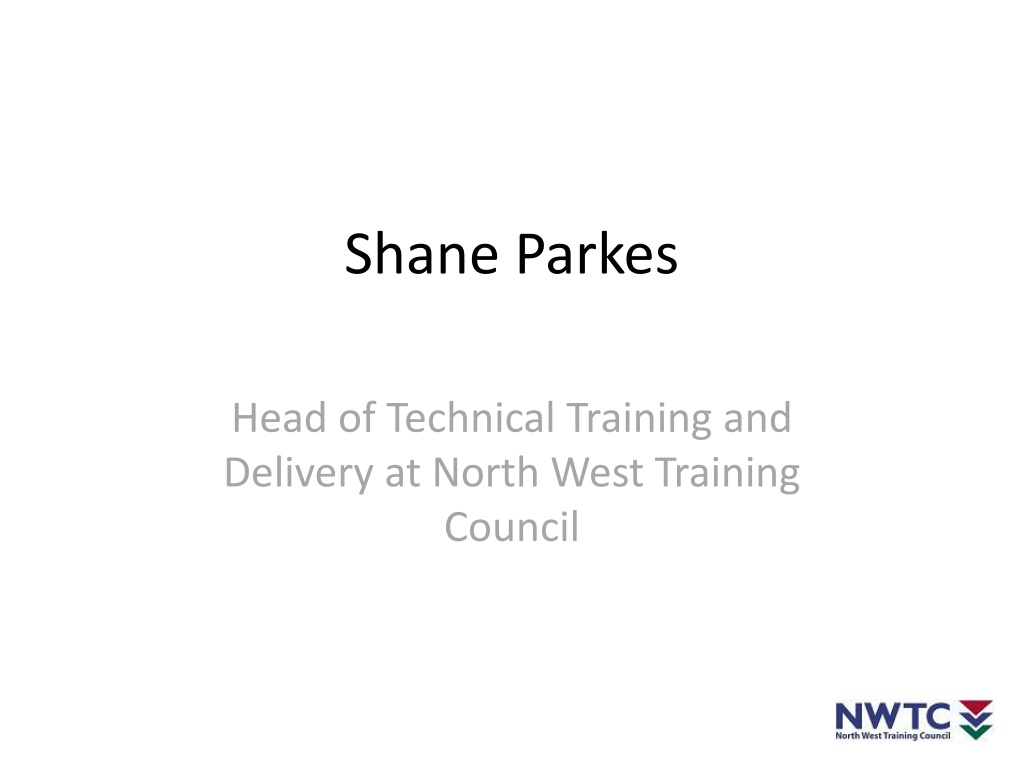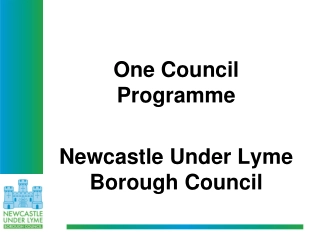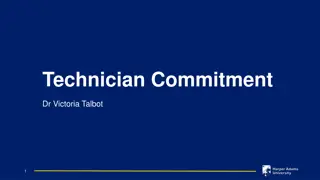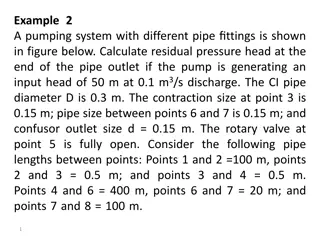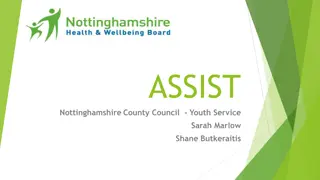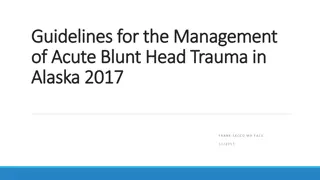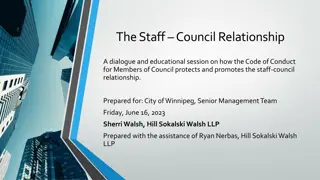Shane Parkes: Head of Technical Training and Delivery at North West Training Council
Shane Parkes is the Head of Technical Training and Delivery at North West Training Council. Since 2009, they have trained and assessed Jaguar Land Rover apprentices, with a total of 188 to date. They also have experience with the Mechatronic and Tool and Die Trailblazer Pathways, currently in their third year of delivery. Apprentices undergo training in various engineering skills and progress to skill-specific training. Their curriculum includes units chosen by Jaguar Land Rover and emphasizes continuous professional development for instructors and assessors.
Download Presentation

Please find below an Image/Link to download the presentation.
The content on the website is provided AS IS for your information and personal use only. It may not be sold, licensed, or shared on other websites without obtaining consent from the author. Download presentation by click this link. If you encounter any issues during the download, it is possible that the publisher has removed the file from their server.
E N D
Presentation Transcript
Shane Parkes Head of Technical Training and Delivery at North West Training Council
Since 2009, we have trained and assessed Jaguar Land Rover apprentices to date a total of 188 of which 30 are Higher Apprentices N.W.T.C. have a total of 395 engineering apprentices on our programmes
We are in the third year of delivering the Mechatronic Trailblazer Pathway and the first year of Tool and Die Trailblazer delivery We have 20 apprentices who started in 2015 with 23 2ndyears including 14 toolmakers on the new Tool and Die Trailblazer Pathway and 19 3rd year apprentices Therefore, N.W.T.C. have experience and knowledge of the Trailblazer process
Workshop Delivery The Foundation Units are based on the P.E.O. Level 2 units which we are all familiar with. A minimum of 1400 GLH for Level 2 Mechatronics covers the ten mandatory units being undertaken. This stage takes approximately 16 18 months(16 units JLR) A substantial time off the job The units selected gives the apprentices a broad based understanding of engineering skills. One of the four mandatory units along with health and safety includes business improvement techniques (BIT)
The units JLR have chosen for their apprentices to undertake are:- Producing components using hand fitting techniques Maintaining mechanical devices and equipment Assembling and testing fluid power systems Maintaining electrical equipment and systems Wiring and testing electrical equipment and circuits Wiring and testing programmable controller based systems Producing mechanical assemblies Assembling and testing electronic circuits Maintaining electronic equipment / systems Preparing and using industrial robots General turning, milling, welding applications And four common core
Apprentices will then progress on to a more skill specific period of training; electronic maintenance, robotics, fluid power, assemblies and maintenance In terms of CPD this means returning Instructors and Assessors to industry to familiarise themselves with technological developments and how to apply them within the assessment process in order to teach skill specific specialisation
Gateway Assessment (Practical) This is also the point were the apprentices can fail the Foundation Stage due to their inability to apply the skill, knowledge and behaviours they have learned The Assessment consists of a three day practical assessment covering at least three of the mandatory units (PL.C., elec. wiring and mech. maint.) they have undertaken with an emphasis on behaviour We have just ran our second Gateway Assessment
F.E. Delivery BTEC has 720 GLH attached The BTEC framework is specific to the Trailblazer and has different rules and content to other BTEC qualifications Be aware of timetabling issues; maintenance units should be taught after design units!
Behavioural Review This is an additional element to the qualification whereby implementing and maintaining the behavioural framework develops the apprentices holistically by including assessing personal skills and behaviours. Do not underestimate the time and training needed for staff to complete behavioural reviews Behaviours Knowledge Skills
New Standards Financial Implications Gain employer sign-off on the delivery cost model as early as possible - need to breakdown into training and assessment costs, payment profiles and split over the apprentice duration Watch your cash flow remember you get no SFA income until you can evidence employer payment! However, currently rules allow you to skew payments to recover initial delivery costs Ensure your MIS system can accommodate trailblazer funding - not sure about reconciliations Watch for the impact of higher funding levels on your SFA contract allocation especially ASB Employer incentive payments come out of providers contract allocation - Two payments for 16 -18 yr. olds - first after three months second after 12 months on programme band 5 - 2,700 x 2 Payment for small business triggered after three months on programme - band 5 - 2,700 Need to establish a mechanism to pass these payments on the employer with a sufficient audit trail (payments should be made within 10 days) Funding post 2017 unclear - so proceeding at risk re investment
Fiscally, this programme is matched by the S.F.A.; every 2 the employer contributes, the government contributes 1 The costings which are agreed initially include delivery of training, assessment and the final synoptic test N.W.T.C. have employed a Strategic Account Coordinator to explain and negotiate payment plans for the new standards So this wage is in addition to training courses for current staff, new equipment and consumables However, we have been recompensed already by the new business this has generated as other employers wish to follow this model. As a training organisation we have been re-energised by consistently evolving our instructional practices and of course it gives N.W.T.C. kudos to be a Trailblazer at the forefront of industry and governmental revolutionary change
Implications Size of off the job period Foundation Stage will take up to 18 months or 2 years to complete which will include the Gateway Assessment( 12 months for Tool and Die 10 units) Delivery Plan and associated logistics Assessors do not interface with the second tier of apprentices employer i.e. managers, H.R. Fiscal pressure such as the buying of new kit is a consideration as to date N.W.T.C have spent in the region of 250k on consumables
Analysing behaviours has been protracted and convoluted as the detail is comparable to profiling . Staff expectations have not always matched the self appraised grade of the apprentice The employer feels ownership towards the qualification and it is them not the Awarding Body who guides delivery and assessment. N.W.T.C are only dealing with one employer, it would be very difficult therefore to administrate successfully to a number of customers On a personal level, weekly meetings at JLR to communicate changes is time consuming meaning less time to embed the programme.
